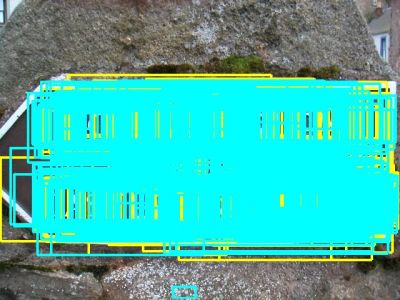
Text detection before filtering rectangles.

Text detection after filtering rectangles.

'P' wrongly detected as 'D'.

Text region after k-means segmentation.

Text region after binarization.
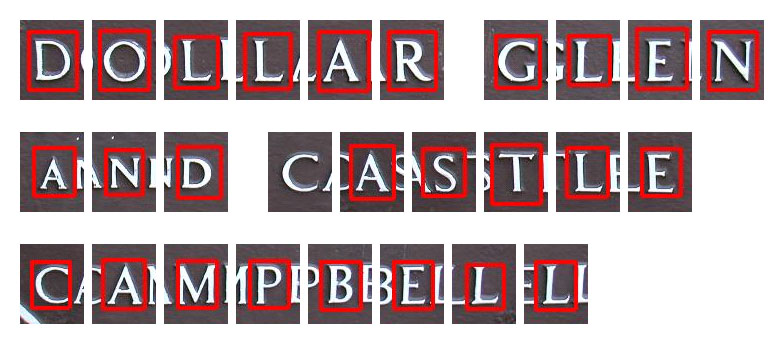
Final letter recognition and segmentation, here 'C' of 'CASTLE' was segmented but not recognized.
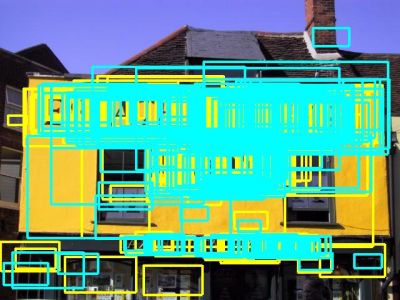
Text detection before filtering rectangles.

Text detection after filtering rectangles.

'E' of 'AGENTS' and corner of window wrongly detected as 'L'.

Text region after k-means segmentation.

Text region after binarization.
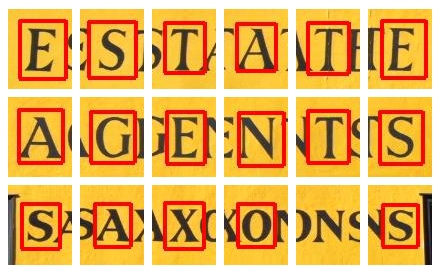
Final letter recognition and segmentation, here 'N' of 'SAXONS' was segmented but not recognized. Also, 'G' was identified as 'O'
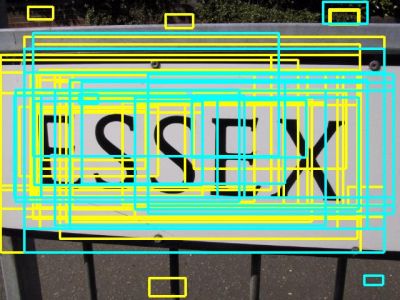
Text detection before filtering rectangles.

Text detection after filtering rectangles.

Part of 'S' wrongly detected as 'D'.

Text region after k-means segmentation.

Text region after binarization.

All letters correctly segmented and recognized
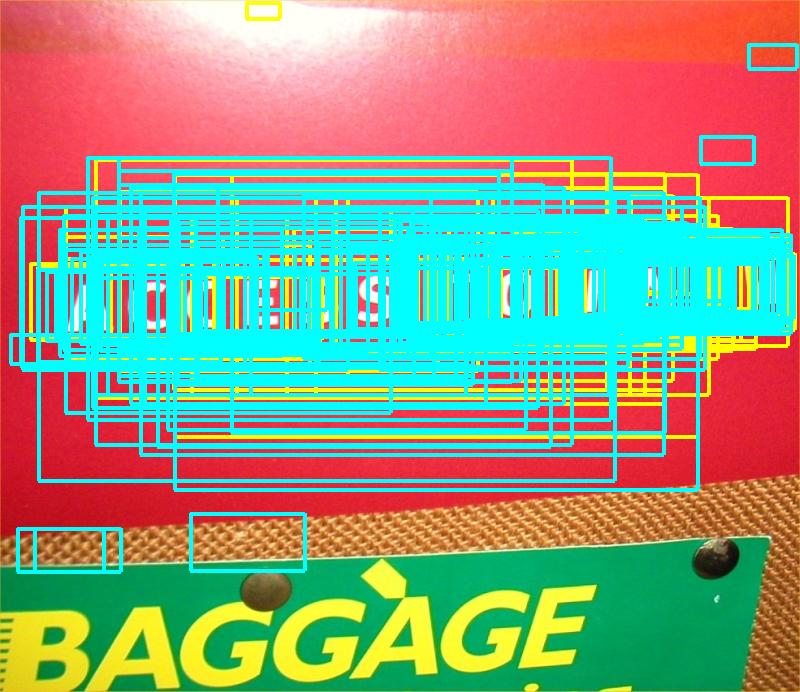
Text detection before filtering rectangles.

Text detection after filtering rectangles.

'O' of 'TO' detected wrongly as 'P'.

Text region after k-means segmentation.

Text region after binarization.

The letter 'W' that borders the edge is detected as a 'V'